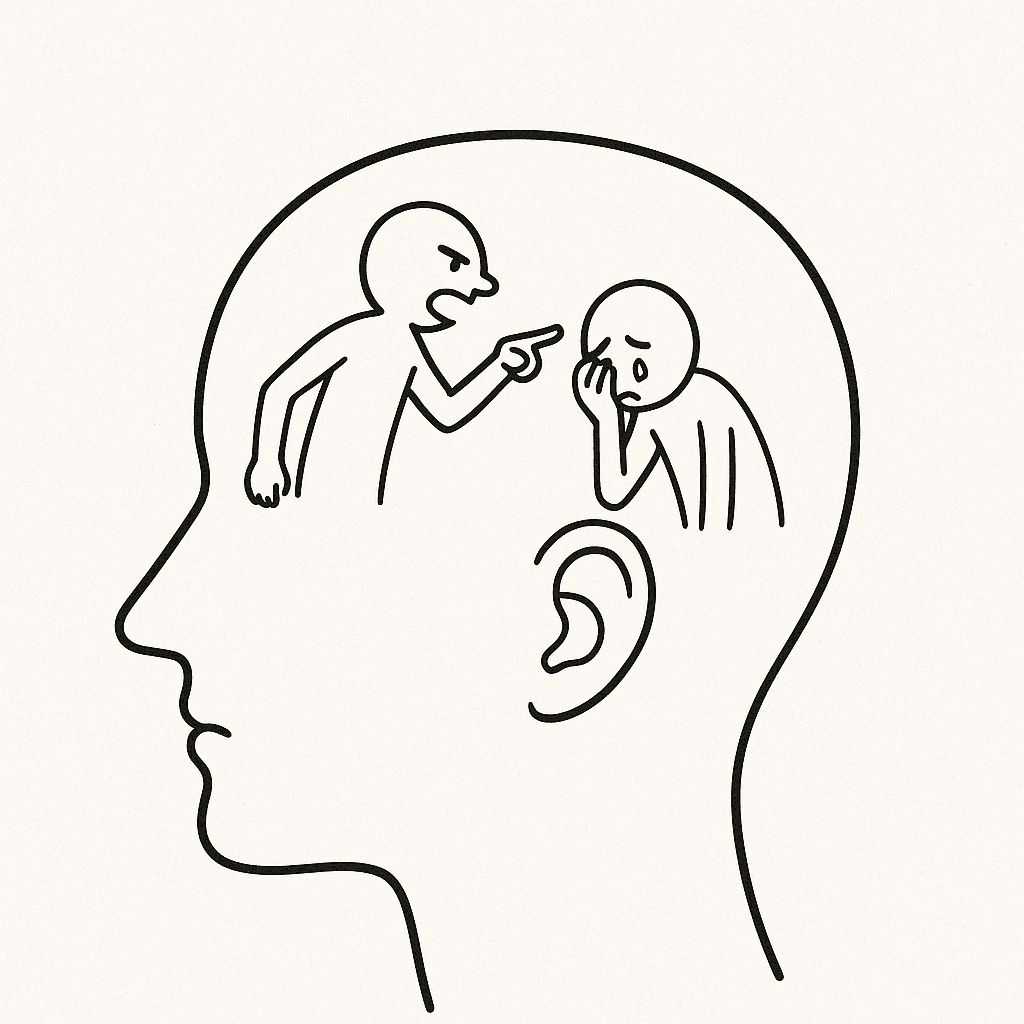Stoicism has become a philosophy that many men admire and strive to embody. It teaches us how to remain composed in the face of adversity, how to manage our emotions, and how to find strength in self-mastery. In many ways, these principles offer valuable tools for navigating the challenges of life. However, when misapplied, stoicism can become a barrier to emotional expression, especially within intimate relationships.
In particular, men often fall into the trap of using stoicism as a shield, believing that if they don’t express their needs or emotions, they’re maintaining strength. The truth is, true strength lies not in silence but in vulnerability, in the courage to express your needs without controlling or managing the outcome.
Stoicism and the Misconception of Silence
The principles of stoicism encourage us to master our internal world, to not let external events dictate our internal state. In a relationship, this might be misinterpreted as never letting your partner see your vulnerability, never showing what you need to avoid conflict, or, assuming that your needs don’t matter as long as you’re “strong” enough to handle things on your own.
However, this approach leads to emotional isolation and creates barriers in your relationship. Silence about your needs doesn’t foster connection; it breeds distance. Stoicism, when properly understood, isn’t about shutting down your emotions or needs. It’s about understanding them deeply and responding to them with intention, clarity, and self-possession.
Expressing Needs: The Power of Differentiation
One of the key challenges many men face is avoidance of expressing a need due to fear of conflict with their partners. This is where David Schnarch’s concept of differentiation comes into play. Differentiation means being able to hold onto your sense of self, even when you are close to others. It’s the ability to express your needs, desires, and emotions without becoming overwhelmed by your partner’s reactions or seeking validation from them.
An exercise in differentiation is simply asking yourself:
- Can I express a need in my relationship without trying to control how my partner reacts?
- Am I comfortable standing in the tension that sometimes arises when my partner and I see things differently?
Differentiation is not about emotional detachment. On the contrary, it’s about staying emotionally connected while still being clear about your own needs. This is the heart of expressing yourself authentically in a relationship. Differentiation helps you show up fully—speaking your truth while remaining emotionally present.
Exercise:
Next time you feel an unmet need in your relationship, practice differentiation by writing down your feelings. Ask yourself if you’re avoiding expressing your need because you’re afraid of how your partner will respond. If the answer is yes, recognize that this fear is about managing outcomes. Your goal is to express your need clearly, without attempting to shape the other person’s reaction.
Stoicism as a Foundation for Healthy Expression
True stoicism can support your emotional expression, not stifle it. The practice of stoicism teaches us to separate what we can control from what we can’t. In the context of relationships, we cannot control how our partner will respond to our needs, but we can control how we express them.
Stoicism encourages you to act with intention and clarity. It’s not about pretending that you don’t have needs or emotions; it’s about not being ruled by them. When you feel the need to express something in your relationship, stoicism can help you do so from a place of non-defensive empathy, rather than reactive emotion.
Let’s apply this to a common situation: You feel like your emotional or physical needs are not being met in your relationship, but you’re hesitant to bring it up. Instead of suppressing this feeling under the guise of stoicism, ask yourself:
- What is the need I’m feeling?
- Can I express this need gently without attachment to how my partner will respond?
- Am I acting in alignment with my values by not sharing this feeling, or am I simply avoiding the discomfort of conflict?
In this way, stoicism becomes a tool for expressing needs from a place of groundedness, without letting the fear of rejection or misunderstanding hold you back.
Communication: The Gottman Approach to Expressing Needs
John and Julie Gottman’s work on relationships highlights the importance of clear, direct communication—especially when it comes to expressing needs. Their research has shown that healthy relationships are built on a foundation of open dialogue, where both partners feel safe to express what they need and feel heard by the other.
However, many men struggle with this because they fear that expressing a need will come across as weakness, or they don’t want to cause conflict. This is where the Gottman Method provides valuable tools for learning how to communicate needs in a healthy and constructive way.
Exercise:
When expressing a need, use the “I” statement format, which focuses on your experience rather than blaming your partner. For example:
- Instead of saying, “You never listen to me,” reframe it as, “I feel unheard when we talk, and I need us to find a way to communicate where I feel listened to.”
- Instead of “You don’t care about what I need,” try, “I’m feeling disconnected, and I need us to spend more time together so I feel closer to you.”
This type of communication takes the edge off potential defensiveness and invites your partner into a conversation about how you can both meet each other’s needs.
Stoicism, Needs, and Letting Go of Control
For many men, expressing a need in a relationship feels risky because it opens the door to their partner’s potential reaction. By staying silent about what bothers them, they avoid immediate conflict, managing the outcome by keeping the peace. But this silence often leads to simmering resentment, which over time builds into deeper frustration. When unspoken needs finally surface, they often do so in a larger, less manageable conflict, amplifying the very resentment that silence was meant to avoid.
The real challenge lies in letting go of the need to control your partner’s response. Stoicism, when practiced well, teaches that we control our actions, not others’ reactions. Expressing a need is within your control; how your partner responds is not. This may feel uncomfortable at first, but it’s essential for a healthy relationship. By relinquishing control over their reaction, you free both yourself and your partner from the weight of unspoken expectations.
Exercise:
The next time you feel the urge to keep silent to manage the outcome, pause and remind yourself: My role is to express my need clearly and honestly. I can’t control my partner’s response.
This practice of releasing control eases the pressure on both partners and makes way for more genuine connection. When you let go of managing the outcome, you invite trust and authenticity into the relationship, creating space for real understanding to grow.
Moving Beyond Silence: The Courage to Be Seen
The real strength in relationships lies in vulnerability, not silence. Stoicism can help you manage your internal world, but it should never be used to hide your needs from the people you love. True strength comes from being able to express yourself clearly and authentically while being comfortable with the fact that not every need will be met in the way you might wish.
When men begin to view stoicism as a tool for emotional mastery rather than emotional suppression, it opens the door to deeper, more meaningful relationships. By expressing your needs from a place of calm and confidence, you show your partner that you trust them enough to see the real you—without trying to control their response.
Ask yourself:
- Am I holding back in my relationship because I fear being seen or misunderstood?
- Am I confusing emotional silence with strength?
- What would it look like for me to express my needs without managing the outcome?
These reflections push you to move beyond the superficial understanding of stoicism as emotional detachment and embrace it as a way to deepen your emotional intelligence and relational strength.
Conclusion: Stoicism as a Path to Authentic Connection
In the end, stoicism is not the enemy of emotional expression; it is a tool that, when used correctly, can help you express your needs with clarity and confidence. The key is to recognize that your silence does not equal strength and that true resilience in a relationship comes from the courage to be vulnerable, to express your needs, and to let go of the outcome.
When you combine stoicism with the principles of differentiation and the communication tools provided by the Gottman Method, you create a powerful foundation for authentic connection. You become a partner who is both emotionally self-aware and willing to engage deeply in your relationship.
Men, the challenge is not in having needs; it’s in being willing to express them. Stoicism can support you in this journey—not as a substitute for expression but as a means to become more comfortable with the discomfort of being seen. True strength lies in the courage to show up fully, needs and all, and to trust that your relationship is strong enough to hold both you and your partner in that space.
Please remember to subscribe below if you found this blog helpful! Are you looking for counseling in Grand Rapids, Michigan? We offer free consultations here! Please reach out to see how we can help you!
About the Author
Aaron Reider, M.A., is a licensed therapist and the founder of Beyond the Couch Counseling. With a deep commitment to helping individuals find peace in a fast-paced world, Aaron specializes in treating anxiety-related conditions and guiding clients to rediscover a sense of awe and wonder in everyday life. His approach is rooted in both evidence-based practices and a profound respect for the complexity of human experience, encouraging clients to cultivate resilience and genuine connection. Through his work, Aaron aims to empower others to lead lives filled with meaning, clarity, and joy.







